The coronavirus pandemic is a physical health crisis, but it could also be a mental health one. In late March, as UK lockdown was just beginning, surveys in the UK and the US were already showing that the pandemic was negatively affecting people’s mental wellbeing.
Thankfully, there are resources out there to help us. Mental health apps can provide one way of calming the mind and keeping track of wellbeing. Here are five of our favourites, all available on iOS and Android.
1
Calm
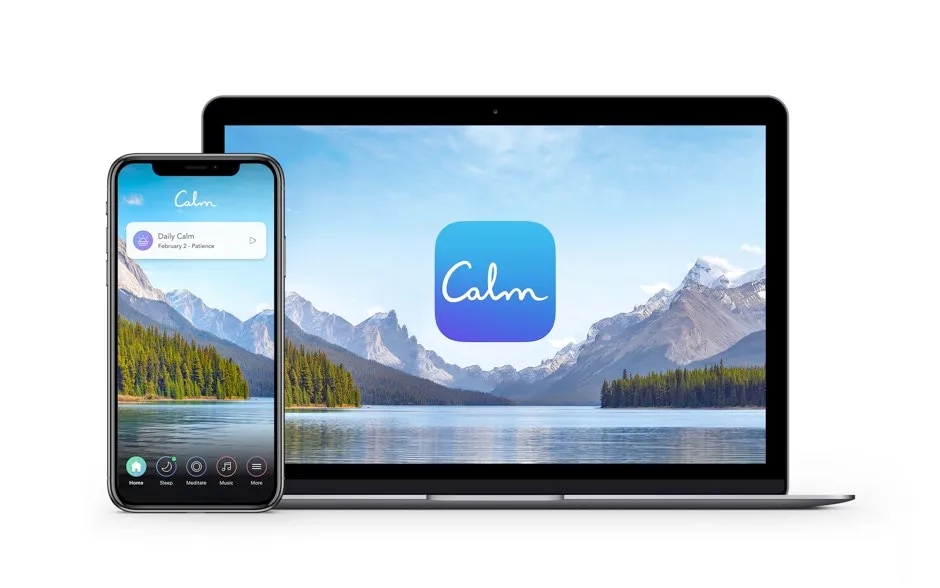
Calm places mindfulness front and centre, and is the place to go for pure relaxation. Open the app and sound of lapping waves greets you. There’s a 10-minute ‘Daily Calm’ meditation, plus an archive of themed mindfulness lessons, expert masterclasses and mindful stretches for the body.
Calm’s other main focus is sleep, with a library of bedtime stories for grown-ups, many of them narrated by celebrities (fall asleep to Matthew McConaughey’s Texan drawl), plus a selection of sleep music featuring Moby, Sam Smith and Sigur Rós.
A lot of this app’s content is paywalled, however, so you’re best off upgrading for the full experience.
Free to download, full access £13.49/month or £35.99/year, calm.com
Read more about mental health:
- Smartphone apps: can they improve our mental health?
- Raising awareness of mental health is all well and good, but the hows and whys are important too
- Lockdown: why is social isolation so hard?
2
Headspace
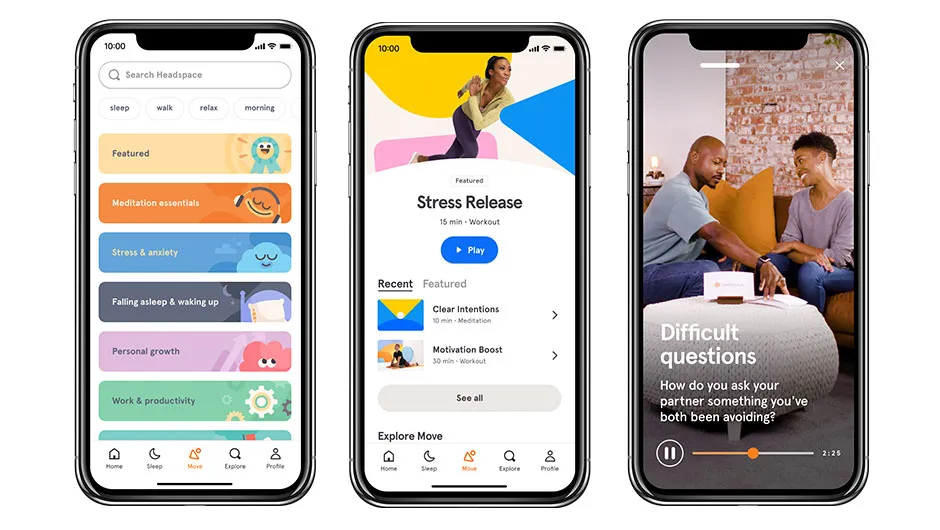
Co-founded and voiced by former Buddhist monk Andy Puddicombe, Headspace – like Calm – is centred on mindfulness and sleep. It sports a more interesting art style, though, with playful illustrations and animations, and the meditation library is especially rich, with courses on everything from self-esteem and anger to creativity and pregnancy, geared at every experience level.
The sleep section, meanwhile, features pre-sleep wind-downs, quirky bedtime stories, an eight-hour-long ‘sleep radio’, and ‘SOS exercises’ for when you wake up in the night. You’ll get the most out of the app if you pay, but there’s a free ‘Weathering the storm’ content package available during the coronavirus pandemic.
Free to download full access: £9.99/month or £49.99/year, headspace.com
3
Moodpath
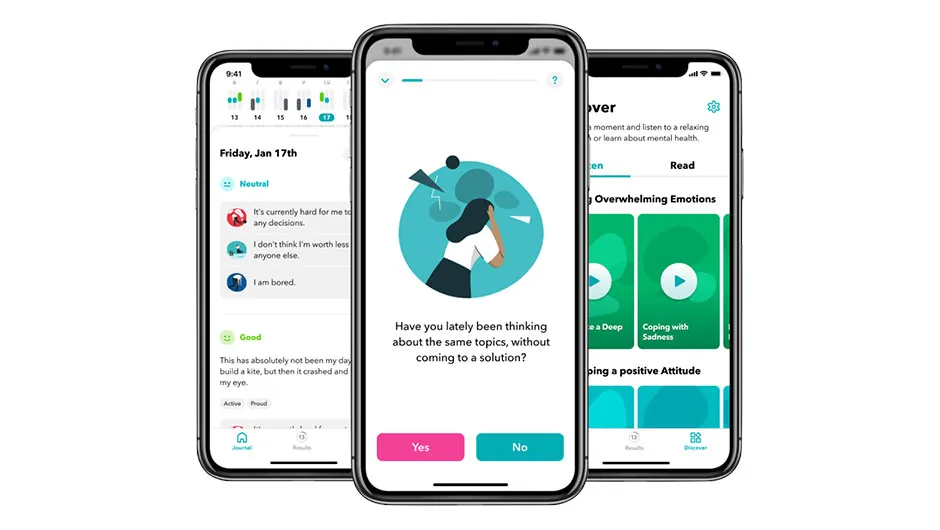
Developed in collaboration with psychologists, Moodpath is aimed at those who think they might be experiencing symptoms of depression. The app asks three simple questions three times a day about the user’s wellbeing. After 14 days, it gives an evaluation and recommendation of action, which can then be passed on to a therapist or doctor.
Alongside this free assessment, the app also has a library of guided meditations and wellbeing courses. Most of these are paywalled, but there are free courses on depression, mindfulness and the coronavirus pandemic, with helpful tips on how to stay mentally healthy.
Free to download, full access for £24.99/quarter, mymoodpath.com
What is mindfulness meditation?
All of the apps highlighted here have one feature in common: mindfulness meditation. That’s perhaps not surprising, as mindfulness-based therapies have been shown to reduce anxiety and stress, and prevent relapses of depression.
Mindfulness meditation involves closing the eyes and allowing thoughts to come and go. It often involves focusing attention on the breath, or on the body. Contrary to popular belief, it’s not about trying to get rid of unwanted thoughts: the aim is rather to let thoughts pass through the mind, without latching onto them.
4
Sanvello
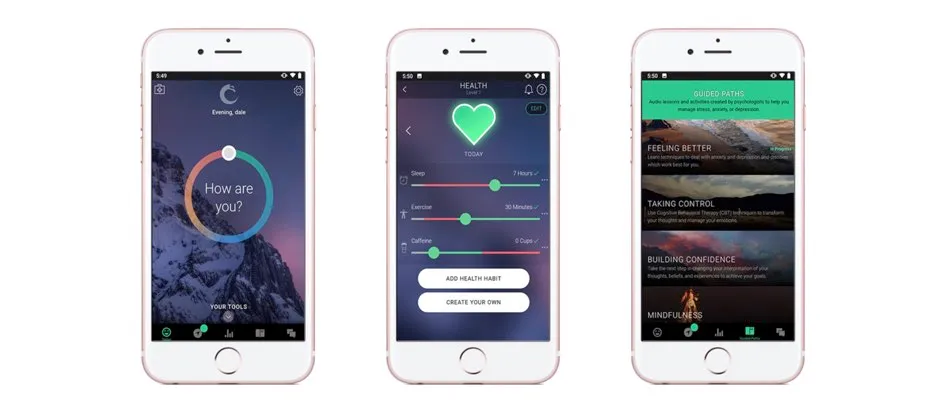
This is one of the most comprehensive mental health apps out there, and it’s offering free access to everyone during the coronavirus crisis.
In addition to its meditations (which come with a neat option to change the background soundscape), Sanvello features self-care courses based on the principles of mindfulness and cognitive behavioural therapy (CBT), and oodles of ways to record thoughts and goals.
What’s especially helpful is that you can keep track of your healthy (or not-so-healthy) habits such as exercise, sleep and caffeine intake, and then plot them against mood to visualise how they might be affecting your mental health.
Free during the coronavirus pandemic, sanvello.com
5
Happify
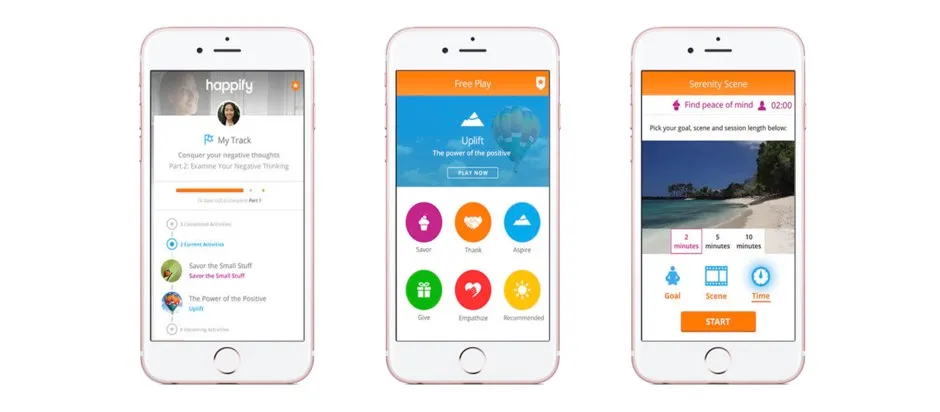
Happify offers a more gamified approach to wellbeing, focusing on six skills, including gratitude, empathy and healthy living, with interactive activities for each one. Some of the activities are games (one involves destroying negative thoughts by firing projectiles at them, Angry Birds style), and some are exercises led by the app’s AI assistant, Anna.
It might be a little gimmicky for some, but one particularly nice touch is that all of the activities come with a ‘Why it works’ section that references scientific studies. Another plus point is that the free version provides access to plenty of content.
Free to download, full access £13.49/month or £124.99/year, my.happify.com
- These apps are not intended as a replacement for medical advice. If you feel like you’re struggling with your mental health, contact your GP. You can also find tips for coping with the coronavirus outbreak at nhs.uk.